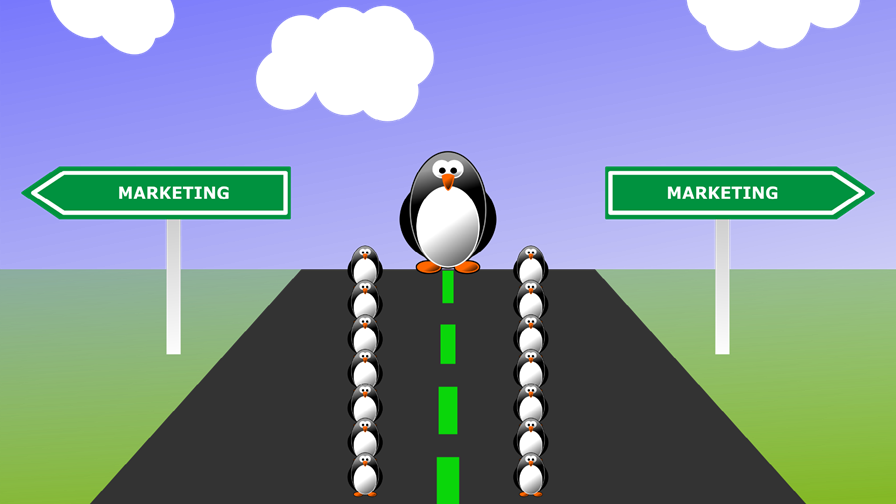More than 90% of businesses can’t use analytics to predict individual needs. Hurrah!

via Flickr © Petr Sejb (CC BY 2.0)
- Facebook data scandal updated
- Data-wielding companies are usually incapable of effective data analysis
- Getting “deep insights” via analytics is hard enough, using them in real time even harder
The Facebook scandal highlighted that company’s lax control of its user data, but the biggest revelation in the whole saga has gone under-reported. Which is this: that Cambridge Analytica’s political analytics, based on vast quantities of Facebook data, didn’t actually work in the way it was supposed to: hype, smoke and mirrors.
According to CNN, “former Trump campaign officials insist they never relied on Cambridge for voter targeting or persuasion. And they say the Trump team never bought into the so-called "psychographic method" Cambridge chief executive Alexander Nix was peddling to US political campaigns.” In another quote, Trump campaign chairman Paul Manafort worried that the data firm was "full of shit."
Yes, I know. The idea of taking seriously the word of a Trump campaign official, former or otherwise, is patently ridiculous. Nevertheless, my own survey of one (me) exclusively reveals that, despite using the Web since its very foundation and religiously buying and booking nearly everything I’ve ever bought or done online since, I have never, as far as I know, ever recieved anything close to a skillfully targetted ad or cunningly personalised piece of marketing collateral, despite there being a huge mountain of data squirrelled away about me.
Like plenty of other people, I’ve instead received lots of poorly targetted ads, usually homing in on travels that I’ve already undertaken or products I’ve already bought. I have to side with Paul Manafort (something I never thought I could say) on the odure issue. There’s a lot of it about.
Now it’s possible that the analytics have me correctly profiled as somebody impervious - indeed hostile - to personalised marketing and ads and as a result they have very cleverly decided not to waste effort on trying to engage with me. Possible but not likely. They’re just not that smart.
Backing me up is a survey just released by a UK data analytics specialist SAS, confirming my unscientific observations, although from the other end of the telescope.
SAS accepts that companies have access to lots of valuable data and, being an analytics specialist, they approve. Its gripe is that companies are not making intelligent use of it .
Its research shows that 93 per cent of businesses currently cannot use analytics to predict individual customers’ needs and that most businesses are “at risk of trapping their customers in a cycle of repeated recommendations.” Ring any bells?
Analytical failures
Despite this almost utter analytical failure, over half of the businesses are wallowing in the hype, believing they are ‘best-in-class’ or ‘transformational’ when it comes to using customer intelligence to shape their marketing campaigns, says SAS.
Getting some “deep insights” via analytics is hard enough, using them effectively, it appears, is even harder. SAS says personalised marketing efforts are often thwarted by an inability to act on the insights in real time. “Although over half (54 per cent) of businesses say they can optimise suggested actions based on real-time behaviour, in reality only 10 per cent calculate customers’ ‘next best action’ on the go.
SAS expects that AI will eventually come to the rescue, with hopes that cognitive engines and machine learning will be harnessed by marketeers to “create chatbot-style solutions that provide human-like interactions”.
“No matter how many organisations say they’re using artificial intelligence and predictive analytics to improve their customer experience, the reality is clearly far behind the talk,” commented Tiffany Carpenter, Head of Customer Intelligence at SAS UK & Ireland. She maintains companies are not using all the information available to make accurate predictions about their customers’ latest tastes and circumstances and risk of damaging their customer relationships as a result.
“Most consumer-facing organisations admit they are still driven by internal sales and targets over customer experience. They need to implement predictive analytics to avoid leaving customers in a rut,” she continued (I love the idea that without being adequately marketed to, customers will be informationally deficient). “It’s essential to incorporate as much data as possible – internal and external, online and offline – in real-time analytics engines to ensure the insights they produce are as accurate as possible. Only then can you achieve the kind of intelligent personalisation that modern consumers now demand.”
Do they really demand personalisation? I’m not sure that if and when the general customer in the street starts to get personalised marketing that they’ll want it. Not, for instance, if it eventually means interacting with an intelligent verbal chatbot, such as the one exhibited by Google a couple of weeks back (see - Google falls into the old ‘my robot’s too smart for its own good’ trap).
Still, if, like many people you view the advent of data-driven personalised advertising and marketing with dread, then you need not worry too much just yet because, if the SAS research is anything to go by, we’re nowhere near close to feeling its full force.
“There’s a clear gulf between what companies think they can do and what they actually deliver,” says SAS. “Although they are quick to sign up to buzz topics like AI and real-time customer engagement, many are failing to make good on their promises.”
So no need to panic... yet.
The SAS research report ‘Darkness of Digital Shadows’ is based on a survey of 350 heads of marketing, customer service and experience, digital and data for their perspectives on how they personalise their customer experience using analytics, AI and segmentation. The respondents were split equally between the energy, government, insurance, media, retail, telecoms and retail banking sectors.
Email Newsletters
Sign up to receive TelecomTV's top news and videos, plus exclusive subscriber-only content direct to your inbox.




